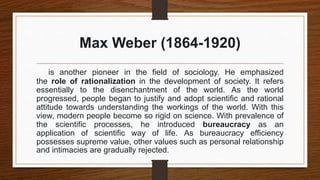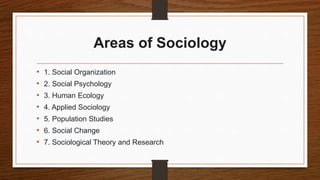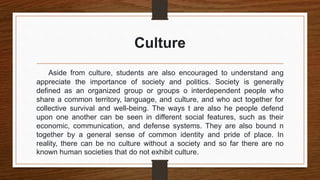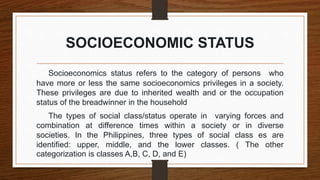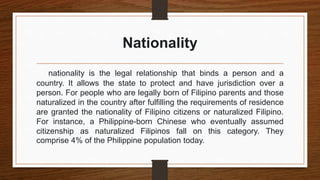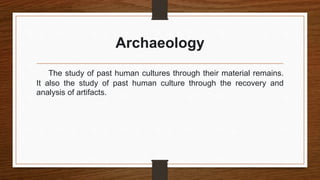This document provides an overview of culture, society, and politics. It defines culture as encompassing ways of life, customs, values and expressions. Society is defined as organized groups that share territory, language and culture. Politics refers to theories and practices of government, including how power is acquired and exercised through political institutions like the state. The document also summarizes key thinkers in sociology like Comte, Marx, Durkheim and Weber, and outlines branches of anthropology and political science. It emphasizes the importance of studying these topics to understand human interactions and relationships, acceptable social behaviors, and the functioning of political structures in different societies.










